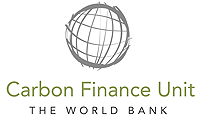Overview
The Uganda: Municipal Waste Composting program aimed to avoid methane emissions from open landfills in Uganda by composting organic municipal solid waste and using the organic matter as humus for soil conditioning and plant growth. Previously, municipal solid waste collected in the municipalities was primarily landfilled, resulting in the emission of a significant amount of methane to the atmosphere. The project employed aerobic windrow-based composting to accomplish waste management. The municipalities participating in the program were responsible for the construction of the composting facility, transport and processing of the waste, selling of the produced compost and disposal of rejects.
Benefits
Community benefits: Construction of schools, latrine pits, health centers, and roads; provision of scholastic materials; provision of more efficient stoves to households to reduce number of trees cut; establishment of training and education centers for agriculture, water- and energy-saving practices; better access to clean water through wells, water storage tanks or rainwater-harvesting jars.
